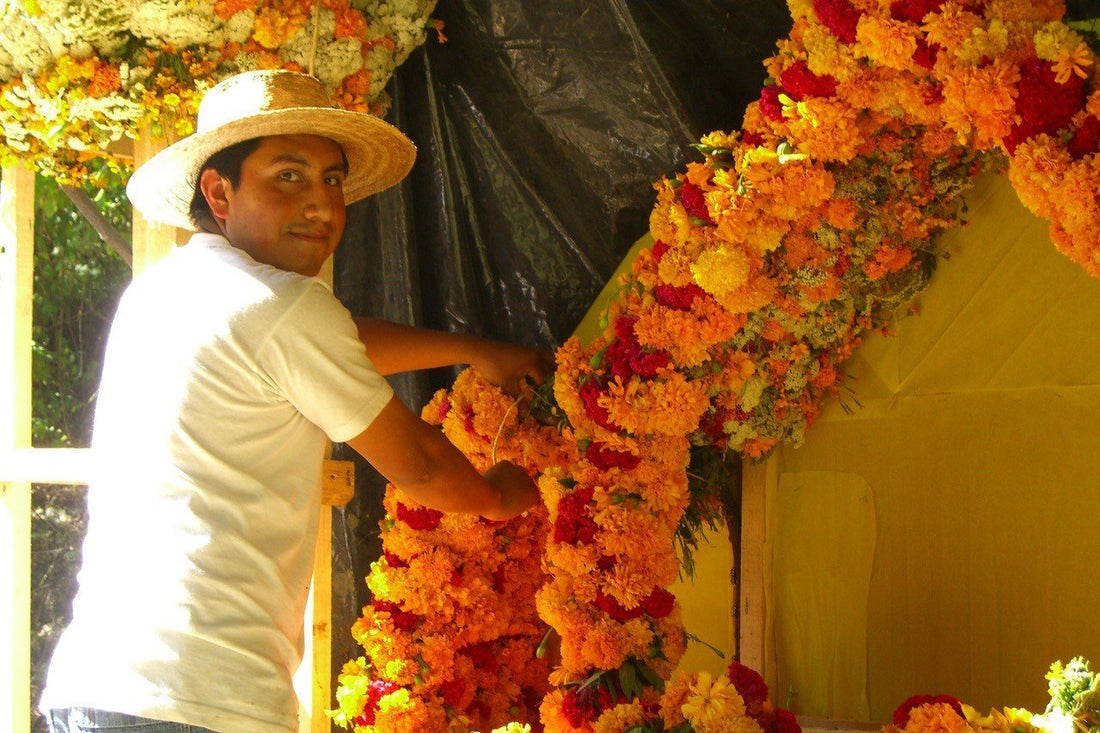Day of the Dead (Dia de los Muertos) through the eyes of our artisans...
The end of October is a very busy time in Mexico, especially in Oaxaca, where regular activity comes to a full stop to prepare for and celebrate Day of the Dead. Though the holiday is in fact about death, it is a uniquely festive time where the senses are overwhelmed by color, light and sound. Revelers make ready for the "return" of the spirits of deceased loved ones for a brief time.

Our Abrazo artisans honor this tradition in their communities with "comparsas" (gatherings of costumed dance, tamales and reenactments of stories behind the holiday), visits to the graves of family members, and the creation of the altar. Assembling the altar is a very important ritual which incorporates flowers, fruit, special foods, photographs, and other personal items cherished by the departed. These constructions, which really are works of art, can include personal possessions such as a hat or shawl, favorite vices such as mezcal or cigarettes, and bountiful amounts of exuberant, colorful decorations.
All of this effort is focused on just two nights: November 1st (for infants and children) and November 2nd when the spirits of loved ones are said to return, rejoin their families, and be remembered. Below are some images of celebrations from our artisan communities in Oaxaca. We hope you enjoy this window into the lives of our Abrazo family and perhaps create your own altar and embrace this rich Mexican tradition.

"Dead bread" is sweet bread made specially for Day of the Dead with entirely edible (though not always tasty) decorations. The markets are full of these breads in every shape and size during the week preceding the holiday.

The community comparsa celebration in our village near Oaxaca. Young and old parade, dance, share tamales and remember.

"Banda" music blares all night during the parades and dances in the village.

Costumed members of the community dancing and acting out the story of young love, temptation of the devil, death and renewal.

Dia de los Muertos began thousands of years ago with the indigenous people of what would become Mexico. It was considered disrespectful then to mourn the dead because birth was embraced equally with death and the deceased were considered members of the community even after death. Today, it is a hybrid of pre-Hispanic religious traditions and Christian feasts. We hope you've enjoyed these images of local celebrations in the Abrazo community.


